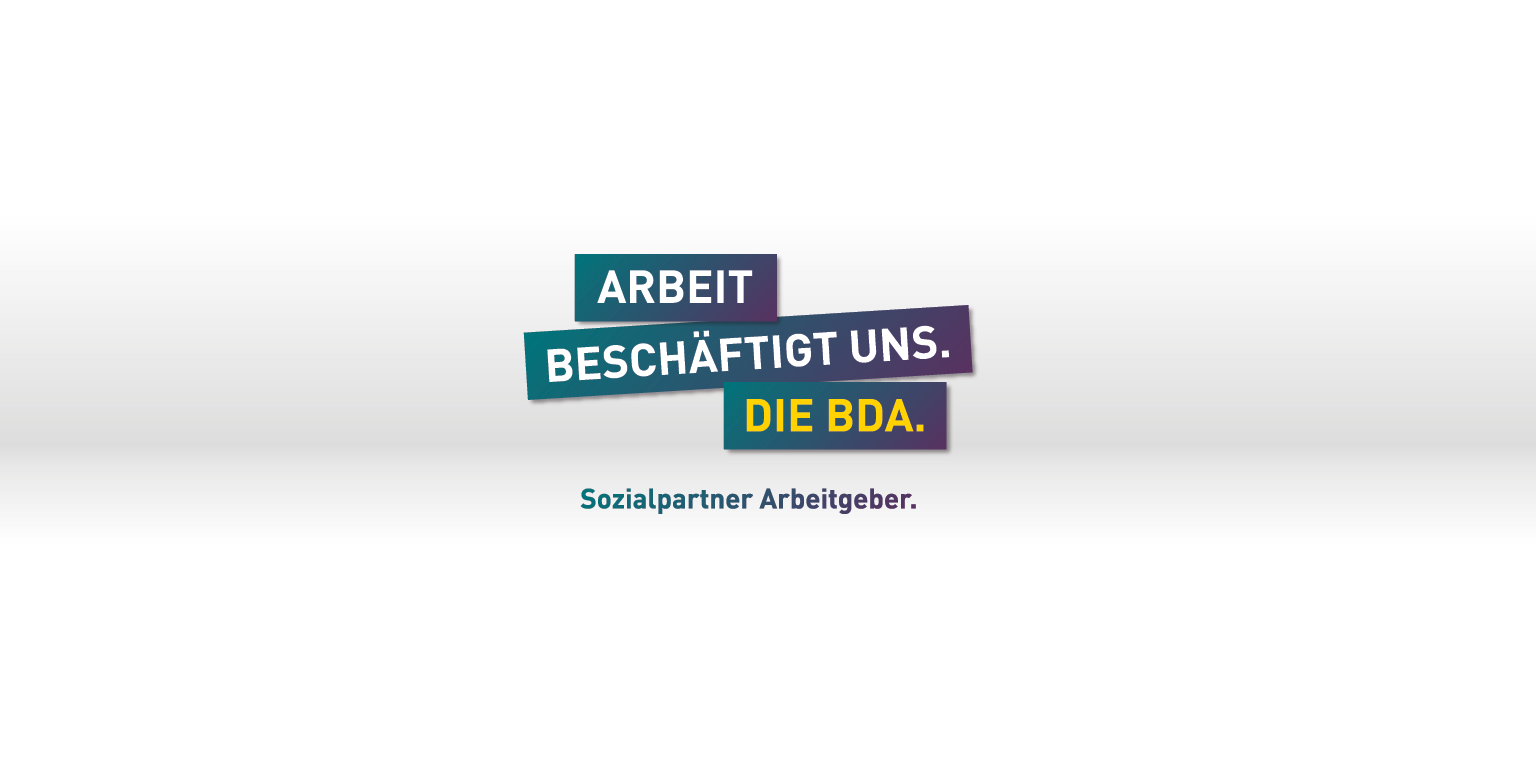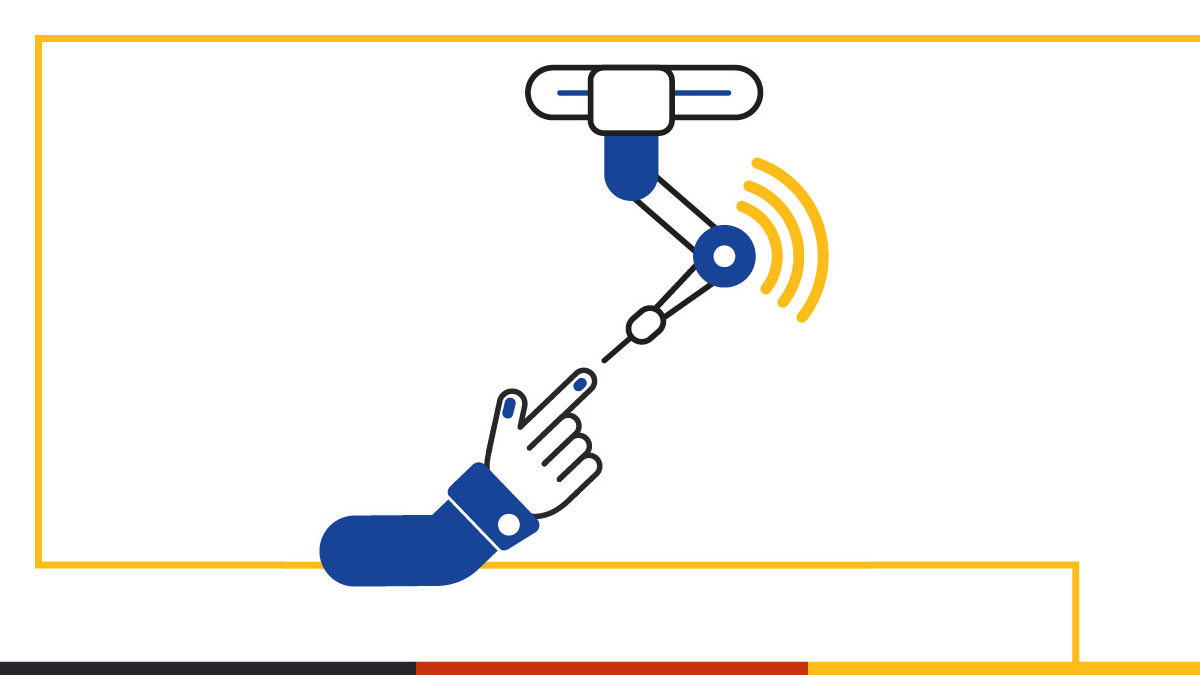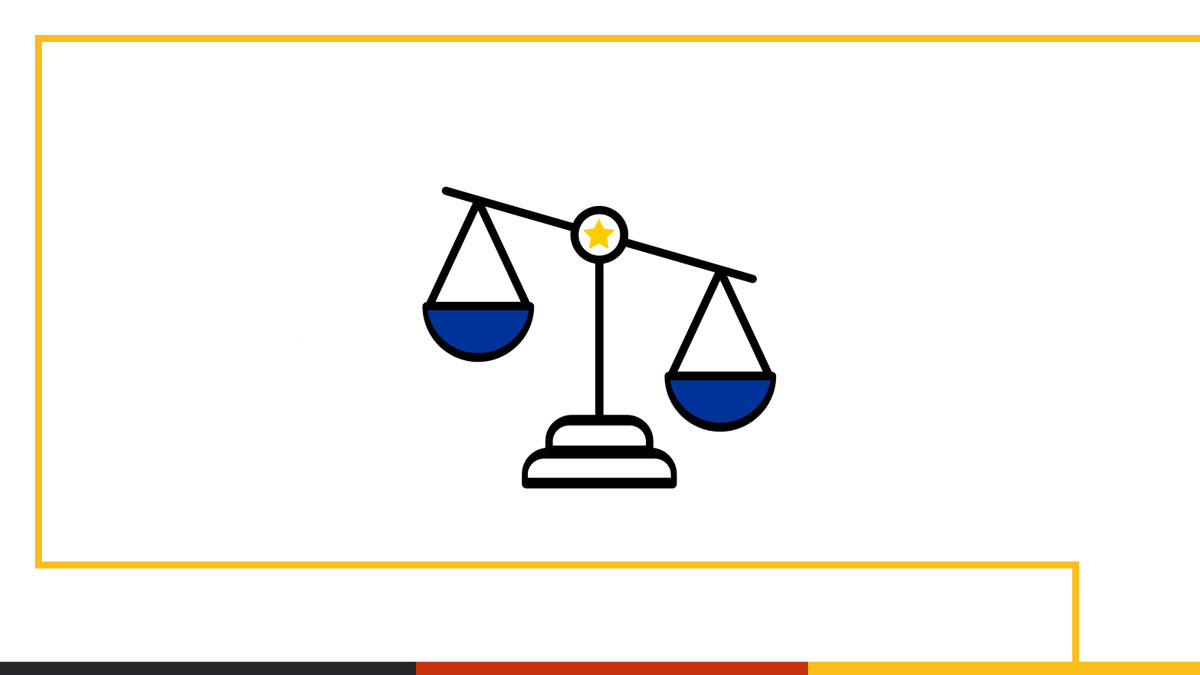EMPLOYERS' PROPOSALS
ON THE CONFERENCE ON THE FUTURE OF EUROPE
We are all called upon to discuss the future challenges and priorities of Europe and to articulate our vision for the future of the European Union in the Conference on the Future of Europe.
With our position paper on the future of Europe we will intensively contribute to the discussion in the coming months. All ideas have one goal in common: with an "Economic Agenda 2030", Europe should set the course to remain a strong, competitive location in the future. To achieve this, we need to make life easier for businesses and citizens: Removing obstacles in the common internal market, promoting the free movement of workers, reducing bureaucracy and "one in, one out", flexible solutions for reconciling family and work, room for manoeuvre and support for the social partners in the Member States, investment in education and innovative capacity - and above all the much-quoted credo "big on big issues, small on small issues".
You can download the publication download here in German and
download here in English .
You can download the publication download here in German and
download here in English .

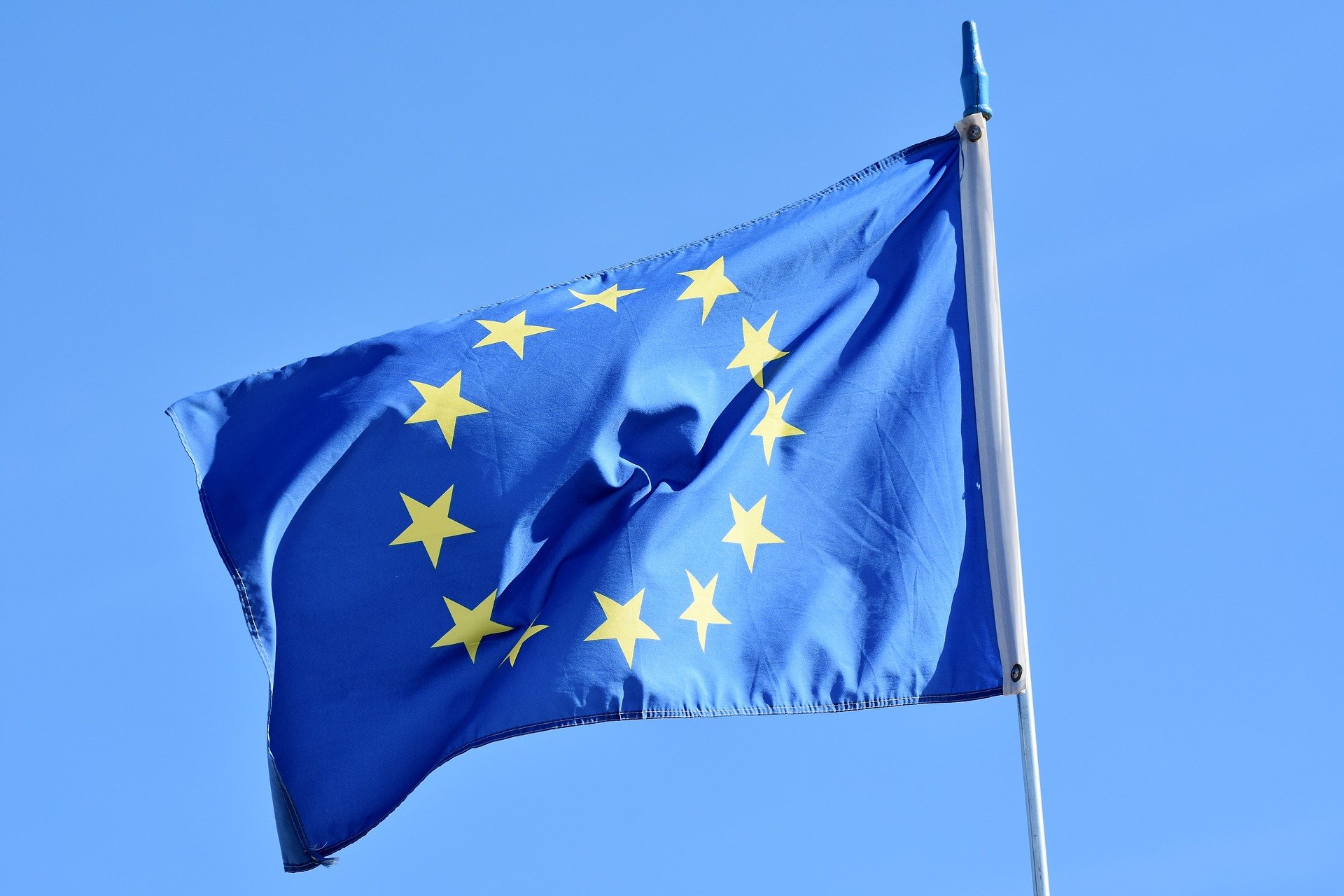
EUROPEAN INTEGRATION
Contracts in force
breathe life into
- German employers are committed to European integration and the values of the Union (Article 2 TEU), they are more relevant than ever before
- We employers want to promote the objectives of the EU (Art. 3 TEU): the internal market and a competitive social market economy, full employment, social justice, and economic, social and territorial cohesion.
- Any action by the EU must rightly respect the principles of subsidiarity and proportionality (Article 5(3) and (4) TEU): Decisions should be taken at the lowest possible level, close to the citizen, and should not go beyond what is strictly necessary.
- That is why the focus must be on core tasks: In future, the EU should only act where it brings added value - it should be "big on big issues, small on smallones
- The EU should speak more with one voice where necessary: In foreign and security policy, it should be empowered to take majority decisions. If the EU wants to be perceived internationally, it must act as one player. Each member state - even the large ones - is too small on its own to be able to resolve global political issues on an equal footing with other actors.

SOCIAL PARTNER
Social dialogue as a driving force
of the social market economy
- According to the EU Treaties, the social partners have a special role: they must be consulted on new legislation in EU social policy pursuant to Art. 154 TFEU and may conclude social partner agreements pursuant to Art. 155 TFEU
- The European Social Dialogue is a powerful tool for actively shaping EU social policy and contributing to EU integration; the EU and Member States can further strengthenthe Social Dialogue and social partnership across Europe
- A strong social dimension in Europe does not require new regulation: the social partners themselves know what is best for employees and companies. They are united by the goal of high employment and skills
- A functioning social partnership needs room to shape the world of work in order to create practical and targeted results with added value; it must not be thwarted by proposing political legislation, as with the proposal of the minimum wages directive
- The Commission's obligations in implementing social partner agreements need to be clarified following the ECJ ruling and, if necessary, legally defined so that the social partners are not prevented from concluding social partner agreements in advance

SOCIAL POLICY
Competences with Member States
and social partners

>> Chapter Download EN
>> Chapter Download EN
- The debate on a new distribution of competences between the EU and the Member States must be conducted honestly: In which areas do we want more Europe?
- Social and labour market policies in the Member States vary widely and have evolved according to national circumstances. Europe is united by the goal of strong labour markets - the ways to achieve this must not and cannot be prescribed centrally.
- Therefore, according to Article 153 (1) TFEU, social policy is explicitly the responsibility of the Member States: The EU "supports and supplements" only in precisely defined areas
- It is right that some core areas, such as the basic principles and the financial balance of national social security systems, are protected from communitarisation - and this should remain the case in the future.
- The concrete legislative proposals to implement the European Pillar of Social Rights threaten to upset the well-balanced equilibrium between the competences of the EU and the Member States: Many principles of the Pillar blur who is specifically responsible and where the EU has competences according to the Treaties
- Plans to transform the European Pillar of Social Rights into a new 'social rulebook' are misguided - one-size-fits-all solutions in such a diverse field rarely lead to satisfactory outcomes acceptable to all
- Instead of legal requirements, we should promote flexible and practical measures to enable equal participation in working life: flexible solutions in companies to reconcile family and career, as well as stereotype-free career orientation and the expansion of childcare and all-day schooling.
- Because of primary national competence, the European Pillar of Social Rights must not be integrated into the Treaties or even a protocol on social progress developed
- Some areas of EU social policy rightly require unanimity in the Council - this serves to protect core national tasks. Majority decisions must not be extended to these areas
- It must be all the clearer for the future: Respect subsidiarity, respect national labour market and social policy and clearly observe the delimitation of competences.

INTERNAL MARKET
On the way to the most attractive
global economic area
- The current debate on EU social policy does not focus on the fact that a prosperous economy is the basis for a socially strong Europe.
- The aim must be to make the European internal market the most attractive economic area in the world and to strengthen its competitiveness.
- Both workers and companies benefit from being part of the internal market and from being able to exploit its opportunities. A functioning internal market with the four fundamental freedoms is the foundation for jobs and competitiveness in Europe
- The single market helps companies to sell their products, create jobs and invest, thus fulfilling their responsibilities in European society.
- National go-it-alone approaches that lead to fragmentation and protectionism damage the common internal market; existing barriers should be dismantled and compliance with common rules should be monitored
- One example: in the long term, posting rules must be simplified throughout the EU by means of uniform, unbureaucratic and digital regulations - in order to provide information, the EU Labour Authority (ELA) can also play a role; the exceptional circumstances should be designed in a contemporary manner and the labour and social law posting requirements should be better interlinked.
- New EU legislation must more strongly include economic unleashing and strengthening of the internal market; the last work programmes of the EU Commission have hardly included any economic policy measures
- We must work after the Covid 19 pandemic to create more economic dynamism, entrepreneurial freedom and space for innovation; for example, the holistic approach of the new industrial strategy and its focus on removing all internal market barriers must be established in further economic policy areas.
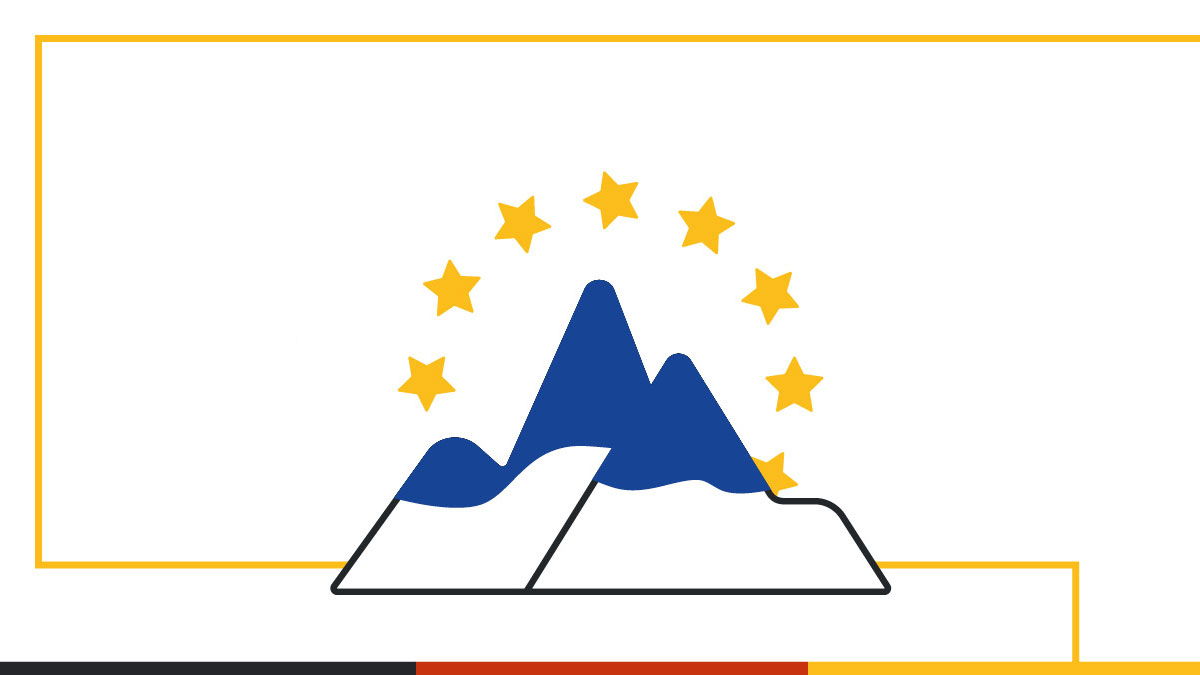
>> Chapter Download EN
>> Chapter Download EN
- In the Schengen area, the potential introduction of border controls needs to be better coordinated; the common management of external borders should be further strengthened
- The Stability and Growth Pact pursues the goal of balanced budgetary policy and has proved its worth in the Covid 19 crisis as a result of the derogations in force; even if the complexity of the overall package can be reduced, the basic principles must not be called into question

LABOUR MOBILITY
Facilitate freedom of movement across Europe,
Attracting talent to the EU
- Free movement of workers offers many opportunities for citizens in the EU. To realise these for workers and employers, internal mobility must be strengthened, barriers removed and easily accessible information provided
- A digitally supported EU social security passport can facilitate cross-border mobility in a targeted manner - the EU Commission is to make a concrete proposal and discuss it intensively with social partners and member states
- Due to demographic change and the increasingly noticeable shortage of skilled workers, the EU should further promote and specifically facilitate the immigration of skilled workers from third countries.
- The new "Blue Card", as the European version of the US "Green Card", with its many simplifications for applicants, employers and authorities, is now to unfold its full potential.

EDUCATION
Digital transformation through
Mastering competence development
- The success of the European economy depends on the right education policy: on qualified employees and their ideas and innovations.
- Europe needs skills for the working world of the future: digital and cross-disciplinary skills should be developed and entrepreneurship promoted. entrepreneurial spirit should be promoted
- Europe's wide range of training opportunities and investment in lifelong learning must be fully exploited to support workers in the changing world of work: for example, by boosting confidence in micro-credentials through EU standards
- Future strategies for continuing education must focus on improving supply and increasing participation - not on questions of financing. financing. Individual learning accounts, for example, are only one of many possible ways of financing continuing education.
- European cooperation is to be continuously promoted and developed in education and training; Europe-wide mobility in the field of education is also to be further strengthened and developed

INNOVATION AND DIGITALIZATION
Establishing "Made in Europe" as a brand
- Digitalisation opens up numerous opportunities for companies and employees alike. We can actively shapethe digital transformation in Europe for the benefit of all
- New ideas are difficult to develop within old, fenced-off boundaries: they need freedom and, where necessary, the right support; in concrete terms, this means that companies need, above all, flexible and innovation-friendly framework conditions.
- Itis important: to create a comprehensive and efficient digital infrastructure throughout Europe; to establish better conditions for start-ups and innovations; to make more investments in cutting-edge digital research by the EU; to better balance risk prevention and innovation-inhibiting burdens in the AI Act; to put promotion before regulation.
- We want to ensure a sustainable transformation: The Green Deal is to become a growth strategy that both guarantees international competitiveness and creates jobs and prosperity

DEMOGRAPHY
Generationally appropriate
ensure prosperity
- We should ensure intergenerational solidarity and disclose the cost dynamics of national social security systems to enable future-proof solutions; the EU should submit a regular report on whether national old-age, health care and long-term care is adequately financed and what burdens will have to be borne in the future.
- Extending working lives must be facilitated, and exchanges and mutual learning must be encouraged through innovative policies in the Member States.
- Making the most of working life: A long and satisfying career is based on making the right educational choices at a young age, the ability to adapt to change, and the willingness to train and retrain as needed

INSTITUTIONAL
Transparent processes for a
trustworthy legislation
- The transparency of legislation must be improved as a matter of urgency: The framework of the so-called trilogues, inter-institutional negotiations, must be codified and working documents must be published more quickly; discussions in the EU institutions should also take place as publicly as possible.
- Deadlines for subsidiarity complaints by national parliaments should be extended; national parliaments often do not have enough time to examine the content and legal basis of the new legislative proposal.
- The EU and its Member States should ensure better implementation and enforcement of existing legislation, for example through the development of guidelines and increased use of implementation and expert groups.
- Rule of law must be guaranteed throughout Europe: Establish an evaluation mechanism for all member states, quickly develop guidelines for the conditionality mechanism for EU funding.
- The EU Commission must conduct consultations in an open and neutral manner, questions must not be formulated according to desired results; moreover, we need a more transparent and streamlined consultation process with clear criteria for evaluating the results.
- We need clear criteria for the selection of the legal basis: if the EU Treaties do not contain clear competences for specific legislation, the legal basis of other policy areas may only be used in exceptional cases.

CUTTING RED TAPE
Courageous unleashing offensive
bring forward
- The "one in, one out" principle can ensure that citizens and business are not increasingly burdened by bureaucracy: If new regulation introduces new burdens, these must be reduced elsewhere.
- The bureaucracy brake must be anchored for all EU policy areas - including social and labour market policy; exceptions to the "one in, one out" rule should be as narrow as possible.
- The EU and the Member States should ensure that the national implementation of the directives does not lead to serious differences and thus to additional bureaucratic burdens for companies and employees.






